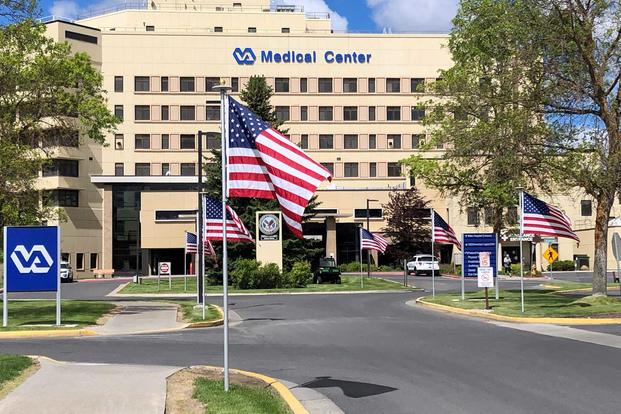Thousands of veterans will resume paying a portion of their prescription medication cost following a two-year suspension of the requirement at five Veterans Affairs facilities served by the department’s new electronic health records system.
The VA is notifying affected patients in the Pacific Northwest and Ohio this week by letter and email of the impending change, which will go into effect Oct. 1.
The affected hospitals are the Mann-Grandstaff VA Medical Center and Jonathan W. Wainwright Memorial VA Medical Center in Washington; White City VA Medical Center and Roseburg VA Medical Center in Oregon; and the Chalmers P. Wylie Veterans Ambulatory Care Center in Columbus, Ohio.
Read Next: Amid Military Housing Crunch, Lawmakers Propose Incentive for Developers to Build Near Bases
The resumption does not affect the Captain James A. Lovell Federal Health Care Center in North Chicago, Illinois, which also uses the Oracle Cerner system, because copays were not suspended during system deployment earlier this year, according to VA Press Secretary Terrence Hayes.
Outpatient pharmacy copayments at the five VA hospitals and their affiliated clinics were suspended in 2022 after the facilities transitioned to the Oracle Cerner electronic health records system.
The VA previously had canceled and refunded copays across its entire health system from April 6, 2020, to Sept. 30, 2021, as a result of the COVID-19 pandemic.
Hayes said that copayments will appear in affected veterans’ November statements. From then on, “pharmacy copayment charges will be seen on the next month’s statement — just as would happen for veterans receiving care and pharmacy benefits from any other VA medical center.”
He added that, while copayments will resume, the department has not decided whether to pursue retroactive co-payments, which could, for some patients, tally thousands of dollars.
“VA is continuing to hold on collecting retroactive payments while we work with Congress and veterans service organization partners on potential relief for veterans,” Hayes wrote in a statement provided to Military.com.
The $16 billion Oracle Cerner electronic health records system has a problematic history at the VA and is currently used at just five VA facilities and the Lovell Federal Health Center.
The pharmacy component of the system, which the VA now calls the federal electronic health records system, has proven particularly troublesome, with patients experiencing lost or delayed prescriptions, double orders and incorrect medications, among other issues.
In May, the VA Office of Inspector General determined that the new system contributed to pharmacy-related patient safety issues and that affected patients were not notified of the risk.
Oracle Cerner is developing an update to the pharmacy module to improve its effectiveness and accuracy, but the VA decided against installing the new version during the rollout at the North Chicago facility, with Dr. Neil Evans, acting program executive director for the VA’s Electronic Health Record Modernization Integration Office, saying that, while it was working in the “vast majority of cases,” it sometimes behaved “oddly” and was not ready for deployment.
All VA patients with the exception of those in Priority Group 1, which includes those rated 50% or higher for disability, those who can’t work as a result of their disability and Medal of Honor recipients, are required to make pharmacy copayments. The VA caps yearly co-pays at $700.
Hayes said that, throughout the process, the VA will keep veterans apprised of any decisions about retroactive pay, and it encourages patients to reach out to the department regarding pharmacy billing or medical debt.
The VA has several resources designed to help veterans manage any VA debt, including a website and the Health Resource Center at 866-400-1238.
Related: VA’s Electronic Health Records System May Require Lots of New Staff. The Cost Worries Lawmakers.
Story Continues
Read the full article here

